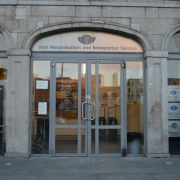UPDATE TO ELIGIBILTY REQUIREMENTS FOR STAMP 4
The Department of Justice have recently changed the eligibility requirements for a Stamp 4 upgrade for employment permit holders. Please note that Stamp 4 support letters are no longer required for this upgrade, and your Stamp 4 permission can be registered at your registration office.
Effective from 3rd April 2024, employment permit holders with a Stamp 1 or 1H permission who have completed 21 months of employment are eligible for a Stamp 4 upgrade at their registration office.
The eligible categories include Critical Skills Employment Permit holder, individuals resident on the basis of a Hosting Agreement as a Researcher, or a Multi-Site General Employment Permit holder as a Non-Consultant Hospital Doctor.
General Employment Permit holders can now obtain a Stamp 4 after 57 months as opposed to 60 months. This means that General Employment Permit holders do not have to apply for long-term residence to the Immigration Service Delivery and can instead upgrade their permission to a Stamp 4 at their registration office.
A significant change to this is that the time period is now judged from date of commencement of employment, rather than the date of registration of Stamp 1 permission, as it had been previously. This had been a significant issue for employees recently due to long delays in registration. Commencement of employment in the State will be determined via your Employment Detail Summary, available on revenue.ie/myaccount.
This blog has been drafted with reference to the following website:
https://www.irishimmigration.ie/update-to-eligibility-requirements-for-stamp-4-upgrades/
For further details on immigration permissions or stamps please visit the following link:
Berkeley Solicitors are available to provide support and assistance to any employment permit holders looking to upgrade to a Stamp 4.
This blog article has been prepared on the basis of current immigration law and policy, which is subject to change. Please keep an eye on our blog and Facebook page where articles relating to updates and changes in immigration law and policy are regularly posted.







